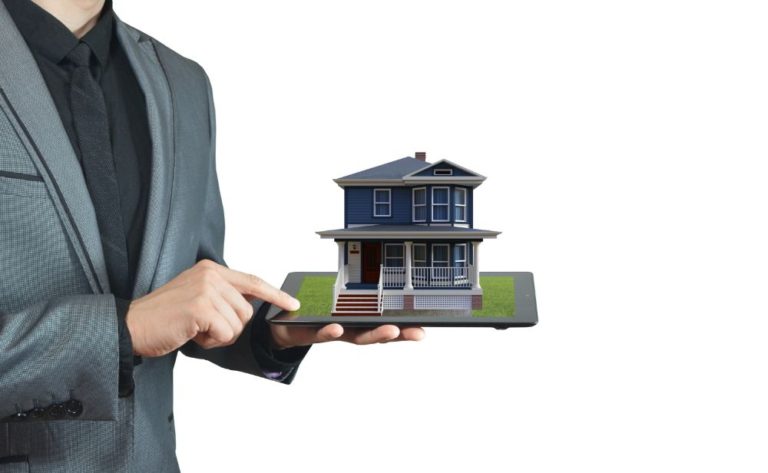How Much Does It Cost to Sell a House?
The process of selling a home is time-consuming and costly, and the costs are frequently substantially more than the sellers might have anticipated. It is easy to become enthusiastic when you consider selling your home after looking at your Zestimate and seeing how much your home’s worth has improved over the years. However, it is crucial to be prepared for the hidden costs of selling a property, which is commonly neglected.
The typical amount of time spent by homeowners in planning and preparation to sell their property is seven months, followed by an additional three months spent having their home listed, pending, and closing. The following is a list of the costs that you should anticipate incurring throughout that time.
What are the costs associated with selling a home?
The overall transaction costs of selling a house include standard closing costs as well as potential charges associated with preparing the home for sale, relocating your belongings (and sometimes yourself), and offering concessions to the buyer. These costs can add up to significantly more than the standard closing costs.
To clarify, closing costs include up to 6% in commissions (to both your agent and the buyer’s agent), as well as an extra 2% to 4% in transfer taxes and property taxes, attorney fees, and other real estate fees such as title insurance, HOA transfers, and escrow fees.
Use our house sale proceeds calculator if you have recently started the process of selling your home and are interested in determining how much cash you will receive from the sale to invest in other real estate.
A breakdown of the costs associated with selling a home
• Preparations to be made to the home
• Moving out of the property
• Seller concessions
• Closing costs for sellers
• Real estate fees: Repayment of the loan, associated taxes and penalties
The following are some of the costs associated with selling a house: Preparations made at home
Even though they are not the conventional closing charges, the following are some of the costs that are associated with selling a house:
Before you host your first open house or show your home to potential buyers, you should give some thought to hiring a house cleaner to give it a thorough cleaning. In addition to that, you will want to have the windows washed and the carpets cleaned by a professional.
Staging: having a home staged was considered as very, very, or extremely significant by 48 percent of recently completed real estate transactions. Home staging can take on a variety of forms, but at a bare minimum, you should remove personal possessions, organise the furniture to make the most of the available space, and get rid of clutter. It’s the little things, like fresh flowers, new bath towels, a clean doormat, and freshly baked cookies, that may go a long way.
Landscaping: Because the initial impression people get of your property is based on your home’s curb appeal, you’ll want to do everything you can to make the outside appear good. You should populate the area with floral plants, build a walkway if you don’t already have one, and rake any leaves that have fallen, mow the lawn, illuminate the walkway, and shovel snow in the wintertime.
Home improvements: There are two main types of home improvements you can do before listing your home for sale: updates to repair or replace old systems (roof, furnace, windows, etc.), and upgrades that add features buyers love, with the goal of garnering a higher sale price. Before you list your home, you should priorities making updates to repair or replace old systems. Ask your real estate agent for their advice on what buyers in your particular area are searching for, and take note of what they say: 79% of sellers conduct house upgrades before selling.
Professional photographs: According to 68 percent of house buyers, viewing professional photographs of a property is anywhere between somewhat significant and highly vital. The initial outlay is not very much, but the potential return is enormous. Depending on the market, the cost of standard professional photographs ranges from $150 to $200. If you are employing a full-service listing agent, it is possible that they will pay for the service on your behalf.
Costs connected with marketing your house There are fees associated with listing your home on the local MLS; however, if you work with a real estate agent, these fees will typically be covered by the agent. If you are selling the property yourself, this type of transaction is known as a “for sale by owner” (FSBO). If you plan to sell the property on your own, you should also put some money away so that you may print fliers, signage, and other materials for open houses.
Pre-inspection: A pre-inspection is not required, but it is recommended that you get one before listing your home for sale. This will allow you to learn in advance about any major problems that need to be fixed, which will save you a great deal of time and energy when negotiating with prospective buyers in the future. 15 percent of house sales that were unsuccessful were due to the buyer changing their mind after receiving the inspection report. You will obtain the knowledge you require to select the appropriate list price for your home and negotiate in a strategic manner if you pay anywhere from $250 to $700 for an inspection, depending on the size of your property.
Home selling expenses: Leaving behind the house
Moving, or the fees associated with actually quitting your house, is yet another category of expense that needs to be accounted for in your budget.
Housing for the short term: It is nearly hard to perfectly time the transactions involved in selling one property and buying another so that there are no additional housing costs incurred as a result of the move. Regardless of where you want to move next, the majority of sellers have a normal overlap of around a month and a half during which they are still responsible for paying their current mortgage in addition to the expenditures of alternative accommodation.
Utilities: In order to facilitate house showings and open houses, the majority of sellers keep their utilities running while their home is on the market. But before you leave, make sure that the utilities are turned off so that you don’t end up paying for anything you don’t need. Your remaining balance on the utility bills should be calculated using the date of sale as the starting point.
Expenses for moving: Your home’s square footage, the number of possessions you have, and the distance you’re relocating can all have a significant impact on the total cost of the move. There are always costs associated with moving, and since they frequently need to be paid before the transaction is finalized, you will need to have cash on hand. This is true regardless of whether you are moving yourself, hiring pros from beginning to end, or doing something in between.
Insurance for homeowners’ properties that are vacant: Did you aware that your current homeowner’s insurance policy might not cover your property if it is left unoccupied for an extended period of time? It is imperative that you discuss the possibility of adding a rider to your homeowner’s insurance policy with your agent in the event that your home will be unoccupied for any length of time.
Common home seller concessions
It happens once in a blue moon that you get the perfect offer and are able to clinch the deal without having to make any concessions to the buyer. In point of fact, the Consumer Housing Trends Report found that 83 percent of sellers engage in some form of give-and-take with the buyer in order to make the sale of their property more feasible.
The following are some of the most common concessions:
Repairs Made After the Inspection: Because it is extremely rare for an inspection report to be flawless, it is normal practice for purchasers to suggest that sellers make repairs. As a result of the findings of an inspection report, sellers frequently either reduce the asking price so that the purchasers can make the necessary repairs themselves or make the completion of the repairs a condition of the sale.
Buyer’s warranty for their new home: Sometimes sellers will pay for the cost of a home warranty for potential buyers as a way to make the deal more appealing to them. Not only can it make your home stand out from the others that are currently on the market, but it can also increase a buyer’s confidence in the property that you are selling. Depending on the coverage, the price of a home warranty for one year can range anywhere from $300 to $500.
Credits toward closing costs One additional concession that buyers frequently request is that the seller cover all or part of the buyer’s closing costs. This effectively reduces the amount of cash that a buyer needs to bring to the closing. This expense will be deducted from the profit you make when the sale of your home is finalized, if you are the seller.
The typical costs incurred by sellers at closing
Both the real estate agent commission (which typically accounts for about 6% of the sale price) and the seller fees (which typically account for about 2% to 4% of the sale price) are included in the calculation of the average closing costs for sellers, which range from 8% to 10% of the home’s sale price. The range for closing costs in the United States is $17,000 to $22,000, given that the median price of a home in the country is $217,000. Obviously, the amount that you will need to pay for these things will change based on the tax rate in your area as well as the value of your home.
The following are included in seller closing costs:
Commission paid to real estate agents accounts for the vast majority of your total closing expenses. It is common practice for the seller to pay 3% commission to both their own agent and the agent representing the buyer. You might be able to negotiate a lower commission with your own agent, or you might think about using a discount agent who provides fewer services in exchange for a lower cut of the commission.
Transfer tax: Also known as a government transfer tax or title fee, the amount of this tax can vary greatly due to the different tax rates that apply in each state as well as the price at which the home is being sold.
Title insurance: In most cases, the seller is the one who is required to pay for a title insurance policy on behalf of the buyer. This policy safeguards the buyer’s interest in the property in the event that there are problems with a contested title or outstanding liens. The costs can range anywhere from $1,000 to $4,000, and they will be deducted from your net profits on the deal when it is time to close.
Escrow fees: The cost of escrow services, which refers to a third-party company that handles the distribution of funds during a sale, can range anywhere from $500 to $2,000 and may include additional line items for office expenses, transfer fees, and notary services. Typically, the cost of escrow services is divided equally between the buyer and the seller.
Property taxes on a prorated basis: Because you are liable for the property taxes on your home up until the day of the closing, a prorated charge will appear on your settlement statement.
Dues paid to the HOA: In the same way that you are required to pay your property taxes, if you live in a neighborhood that has a homeowner’s association, you will also be expected to pay your dues, which will be calculated based on the number of days remaining until the closing date. A fee might also be required in order to complete the change of ownership.
You will be required to make payment for attorney fees at the time of closing if you utilised the services of an attorney during the course of your transaction. In the following states and districts: Alabama, Connecticut, Delaware, Florida, Georgia, Kansas, Kentucky, Maine, Maryland, Massachusetts, Mississippi, New Hampshire, New Jersey, New York, North Dakota, Pennsylvania, Rhode Island, South Carolina, Vermont, Virginia, West Virginia, and Washington, District of Columbia, attorneys are mandated to be present during the closing process.
The costs associated with real estate, including the payoff of loans, taxes, and penalties
After all of the transaction fees have been paid, there will still be some amount of loss. There are a few other costs associated with selling a house that you need to be aware of, and they are as follows:
If you are still making payments on the home’s mortgage after it has been sold to you, one of the steps in the closing process will involve paying off the remaining balance of your mortgage, with interest calculated up to the date of sale. You should get in touch with the company that holds your mortgage to find out whether or not there is a prepayment penalty.
Capital gains tax: One cost associated with selling a home is frequently disregarded until it is time to file taxes. You are eligible for a tax break on the profit you make from the sale of your home if you have lived there for at least two of the most recent five years. This tax break can be worth up to $250,000 if you are single or married filing separately, or up to $500,000 if you are married filing jointly. If you believe that you will be required to pay capital gains taxes, either because you have made a profit that is greater than the predetermined amount or because you have lived in the home for a period of time that is shorter than two years, speak with a tax professional about the possibility of deducting the costs associated with preparing the home for sale from the profits you make from the sale.






